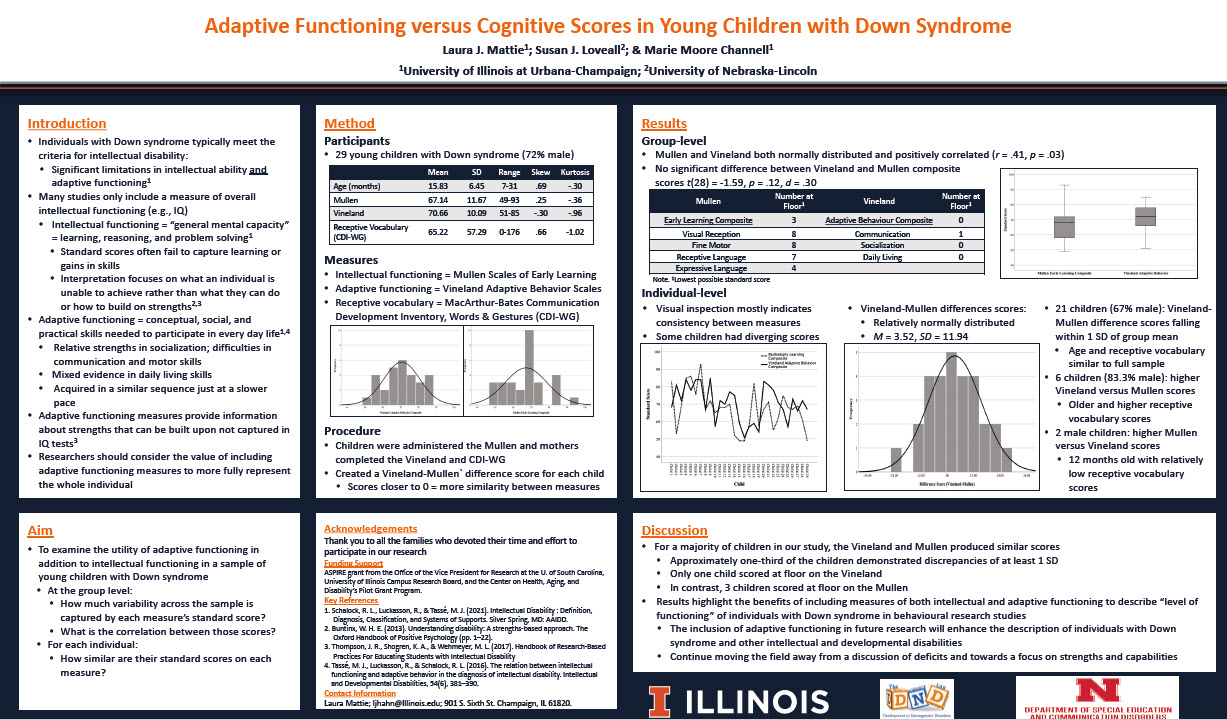Adaptive Functioning versus Cognitive Scores in Young Children with Down syndrome
Adaptive Functioning versus Cognitive Scores in Young Children with Down syndrome
- University of Illinois at Urbana-Champaign
- University of Nebraska-Lincoln
Contact:
Abstract
Background: Most individuals with Down syndrome meet the criteria for intellectual disability, defined as limitations in both intellectual functioning and adaptive skills. However, when describing their samples, many behavioral researchers only include a measure of overall cognition (IQ). As we move towards a strengths- versus deficits-based focus, researchers need to also consider functional, adaptive skills. Despite their importance, it is unknown if measures of adaptive functioning can capture the same variability as overall cognitive measures or the extent to which they can be used to describe individual differences within a sample. Thus, this study analyzed the extent of similarity and difference between adaptive functioning and overall cognitive scores in young children with Down syndrome.
Method: Twenty-nine young children with Down syndrome (7-31 months; M = 15.83) were administered the Mullen Scales of Early Learning (MSEL; assessed overall cognition). Mothers completed the Vineland Adaptive Behavior Scales (VABS) and the McArthur Communication Development Inventory (assessed receptive vocabulary).
Results: Paired-samples t-tests indicated no significant difference between the VABS and MSEL composites, t(28) = -1.59, p = .12. Descriptive data indicated a similar pattern and range of performance on the VABS and MSEL. Most children (n=19) were within 1 SD of each other on both measures. A subgroup of children (n=7) showed a pattern of higher VABS versus MSEL scores (M = 18-point difference); these children were older and had stronger receptive vocabularies. Another subgroup (n=3) showed a pattern of higher MSEL versus VABS scores (M = 16-point difference); these children had weaker receptive vocabularies.
Conclusion: For a majority of participants, the VABS and MSEL produced similar scores. However, approximately one-third of the sample demonstrated discrepancies of at least 1 SD. This highlights the importance of including both overall cognitive and adaptive functioning measures in research to fully capture the abilities of individuals with Down syndrome.
Poster:
Download the PDF here


